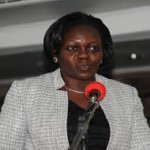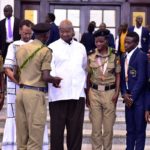The Cuban government will help train Ugandan workers pursuing the healthcare vocation at various universities in the country.
“Cuba will continue to support Uganda through human resource training at several Uganda Universities. Healthcare is one of the key areas that will form part of our cooperation,” the Cuban Vice President Salvador Valdes Mesa, while meeting the Speaker of Parliament Rebecca Kadaga.
According to Vice President Mesa, his visit to Uganda was aimed at reactivating the historic ties that the two countries have shared since the independence and liberation movements of the 1960s.
Mr Mesa also announced plans to have Uganda tap into the unique methods that the government of Cuba has used over the years to eradicate illiteracy.
“Other than the scientific innovations that have seen Cuba produce unique medicines to cure diabetes hepatitis B and Meningitis, Cuba has also used cost effective but very efficient methods to educate its population,” he added.
In response Speaker Kadaga, who met Mr Mesa at Parliament on October 5 applauded the government of Cuba on advancements in health and scientific innovation, and called for strengthening of ties between the two states.
“Uganda has undertaken a programme to reskill our youth. We call for support in technical education that will enable our population to become entrepreneurs,” she added.
Kadaga also called for an end to economic and financial sanctions placed on Cuba by the United States government since the 1960s.
She condemned the sanctions and reaffirmed the commitment of Parliament to have the embargo lifted.
“We condemn the over 50 years blockade. It was not justified in the first place. We shall continue to demand for an end to the sanctions,” she told the visiting Cuban delegation.
Kadaga also announced plans to revamp the Uganda- Cuba Parliament friendship Association that will enable legislators in both states exchange skills and ideas.
Ugandan Legislator and Parliament Commissioner Cecilia Ogwal applauded Cuba for its milestones in empowering women who constitute 66% of the professional scientific labour force.








